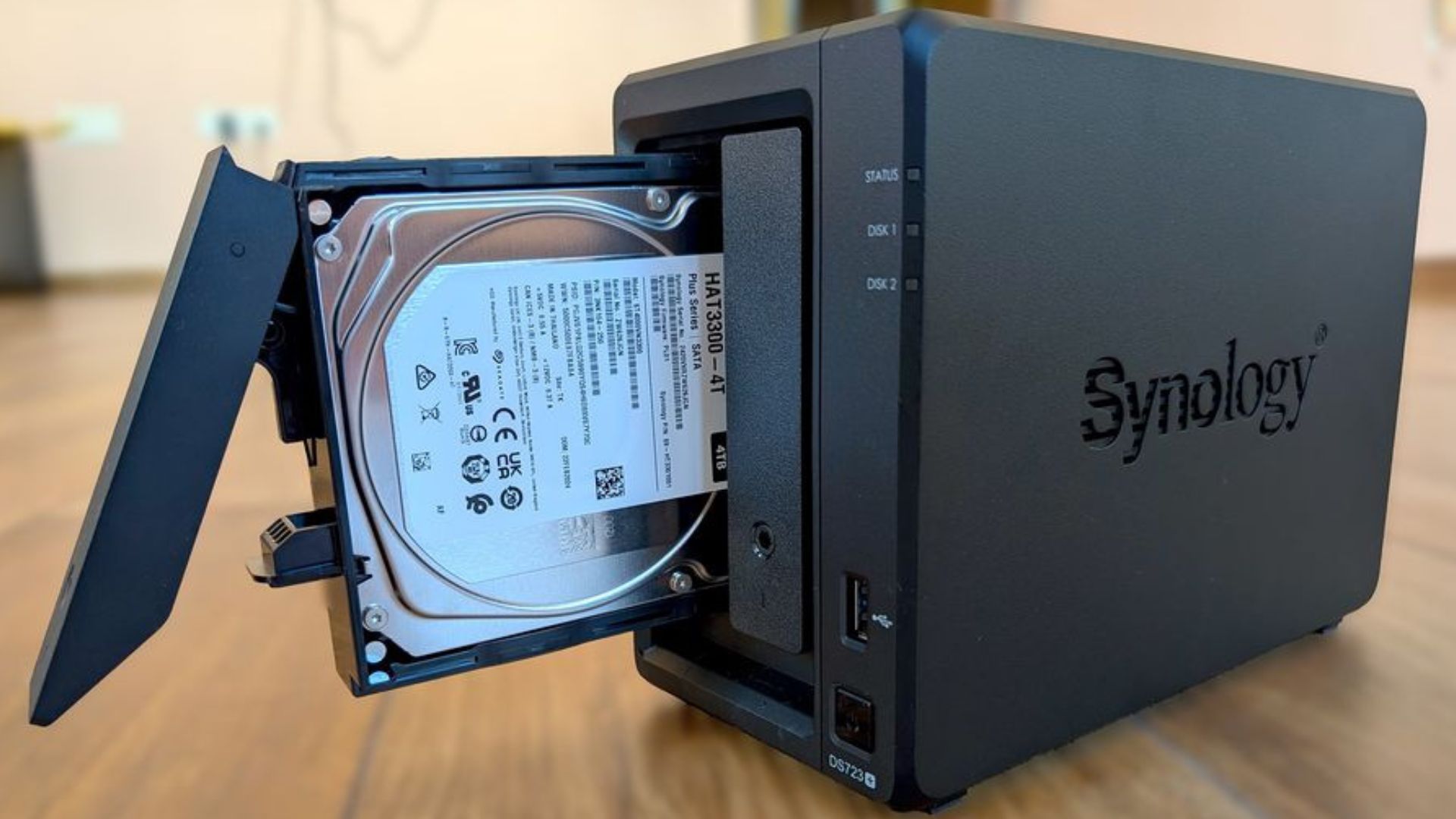Synology launches the DiskStation DS925+ with powerful upgrades—but there’s a catch
Synology launches the DS925+ NAS with big speed upgrades but limits drive choices, raising concerns for future flexibility.

Synology has just unveiled the DiskStation DS925+, a compact four-bay NAS (network-attached storage) system built for professionals and businesses like yours that need reliable, high-speed data management. When paired with the new DX525 expansion unit, you can boost your setup to a full nine-bay device, taking total storage capacity from 80TB to 180TB.
Table Of Content
You can access, sync, and share your data across different devices and platforms, using mobile apps, desktop clients, or a browser. This flexibility means you can keep working, no matter where you are.
Let’s take a closer look at what’s new with this release—and what you might need to watch out for before making the switch.
Faster performance with powerful hardware
The DS925+ runs on a four-core AMD Ryzen V1500B processor with 4GB of DDR4 memory and 4GB of storage. It also includes two M.2 NVMe slots, which can be used either for flash-only storage or as a cache to speed up hard drive performance.
You get two RJ-45 2.5GbE LAN ports for connectivity, two USB-A 3.2 Gen 1 ports, and one USB-C port. Synology hasn’t yet provided full details on the USB-C port’s capabilities, so there is some mystery.
According to Synology, the DS925+ delivers serious speed improvements over its predecessor, the DS923+. In real-world usage, you’ll see 149% faster SMB (Server Message Block) downloads, 150% faster uploads, 131% faster read speeds, and 150% faster write speeds when using default settings.
This makes it ideal for handling large files, running virtual machines, or backing up important data regularly.
A move towards stricter drive compatibility
However, not everything about the DS925+ may suit your needs, especially if you prefer more flexibility in the drives you use. Synology recently announced a major policy shift starting with the 25-series (which includes the DS925+). The company will now require “compatible hard drives” to install DiskStation Manager (DSM), the NAS operating system.
Moving forward, you’ll need to use hard drives listed on Synology’s official Product Compatibility List to get your system running. Non-listed drives won’t allow you to create storage pools and may disable key features such as deduplication and drive lifespan analysis.
Why the change? Synology says this move will ensure better performance, longer-lasting reliability, and smoother technical support. But there’s a trade-off. While Synology doesn’t make hard drives, it rebrands models from manufacturers like Toshiba and Seagate. These often come with a higher price tag than standard drives.
Reactions and what this means for you
If you already have a Synology system or plan to buy a model released before 2025, don’t worry—this new policy won’t affect you retroactively. You can continue to use third-party drives without issue. Even migrating drives from an older model to the DS925+ is possible, though you may face some feature restrictions.
In a statement, Synology explained that they’re shifting towards a more “appliance-like” model. This means stricter control over hardware compatibility, similar to what you see in closed ecosystems like Apple.
This raises concerns about choice and cost for many current and potential users. Some users have already expressed frustration in online forums, with a few even considering switching to other NAS brands that offer more freedom in drive selection.
Whether this change will bring better performance or simply less flexibility remains to be seen. But if you rely heavily on your NAS for business or creative work, weigh the long-term costs and benefits before investing in the DS925+.
The Synology DiskStation DS925+ is available now for S$899. You can purchase it from Synology’s official online stores via platforms like Lazada, Shopee, and the authorised retailer TechYard. Synology also lists approved partners and resellers if you want more options.
















